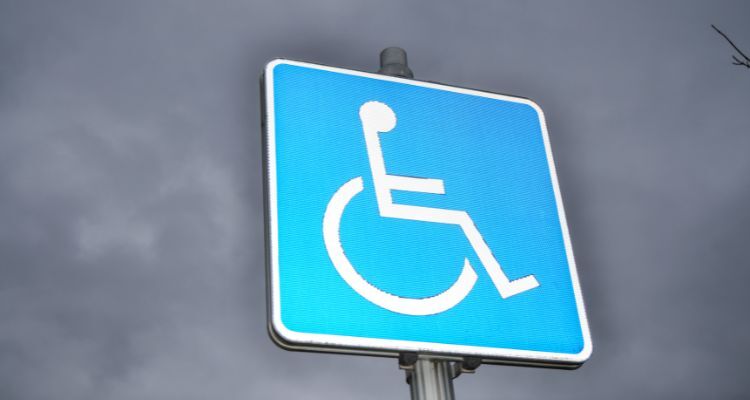
Handicap Placard Violations and Penalties in Idaho: What You Need to Know
Disability tags (placards or license plates) are essential for ensuring that individuals with mobility impairments have convenient access to public facilities. These tags provide access to designated parking spaces that are typically closer to building entrances and designed to accommodate individuals with disabilities who require extra space for wheelchairs, walkers, or other assistive devices. In ID, disability tags come with specific rules and regulations that users must follow. Misusing these tags not only denies parking spaces to those who genuinely need them but also leads to legal penalties and fines.
In this article, we’ll explore the rules governing handicap placards in Idaho, outline common violations, and detail the penalties for misuse. We’ll also provide guidance on how to report violations and answer frequently asked questions to ensure you have a complete understanding of the laws regarding disability tags in the state.
What is a Handicap Placard in Idaho?
Definition and Purpose
A disability tag in ID is a placard or license plate issued by the Idaho Department of Transportation (IDT) to individuals with disabilities that significantly limit their ability to walk or otherwise impair their mobility. The tag allows individuals to park in designated accessible parking spaces, which are located closer to building entrances and typically offer extra space for loading and unloading mobility aids like wheelchairs.
The purpose of a disability tag is to ensure that individuals with physical disabilities can access public spaces and services with greater ease. These tags provide essential accommodations for those with limited mobility, helping them maintain their independence and quality of life.
Types of Disabled Permits Available
In ID, there are several types of handicap permits available:
- Permanent Disability Tag: Issued to individuals with long-term or permanent disabilities. These tags must be renewed periodically, typically every five years.
- Temporary Disability Tag: Issued to individuals with temporary disabilities, such as those recovering from surgery or injury. Temporary tags are valid for up to six months but can be extended if needed.
- Disabled License Plates: Issued for vehicles owned by or primarily used to transport individuals with disabilities. These plates serve the same purpose as tags but are permanently affixed to the vehicle.
- Disabled Veteran Plates: Available to veterans with service-related disabilities, providing the same parking privileges while honoring the veteran’s service.
Each of these tags provides access to accessible parking spaces, ensuring that individuals with disabilities can park closer to building entrances and reduce the distance they need to walk.
Eligibility for Handicap Placards in Idaho
Qualifying Medical Conditions
To qualify for a disability tag in ID, an individual must have a medical condition that significantly limits their ability to walk or requires the use of mobility aids. Common qualifying conditions include:
- Inability to walk more than 200 feet without stopping to rest.
- Lung disease that limits the ability to breathe, affecting mobility.
- Cardiac conditions classified as Class III or IV by the American Heart Association.
- Dependence on portable oxygen.
- Arthritic, neurological, or orthopedic conditions that impair walking or mobility.
- Amputation of limbs or the need for mobility aids such as a wheelchair, cane, crutches, or walker.
To apply for a disability tag, individuals must provide medical certification from a licensed healthcare provider confirming that they meet the eligibility requirements.
How to Apply for a Disability Tag
Applying for a disability tag in ID involves the following steps:
- Obtain the Application: The application form (Form ITD 3392) can be downloaded from the ID Department of Transportation’s website or picked up at a local DMV office.
- Medical Certification: A licensed healthcare provider must complete the medical certification section of the form, confirming the applicant’s qualifying disability.
- Submit the Application: The completed form can be submitted by mail or in person at a local DMV office, along with any required documentation such as proof of identity.
- Receive the Tag: Once the application is processed, the disability tag or license plate will be issued.
There is no fee for permanent or temporary tags in ID, but standard vehicle registration fees apply to disability license plates.
Common Disability Tag Violations in Idaho
While disability tags are a critical resource for individuals with disabilities, misuse and violations of the rules can lead to significant problems. Below are some of the most common violations associated with Idaho disabled permits:
1. Using a Disability Tag Without the Permit Holder Present
One of the most frequent violations is using a disability tag when the person to whom it was issued is not in the vehicle. In ID, disability tags are issued to individuals, not vehicles. This means that the person with the disability must be present for the tag to be legally valid. Using it without the authorized holder is considered misuse and can lead to fines or confiscation of the tag.
2. Lending or Borrowing a Disability Tag
Lending or borrowing a disability tag is another common violation. Even if a family member or friend is using the tag with good intentions, it is still illegal unless the person with the disability is in the vehicle. This type of misuse can result in fines ranging from $100 to $300 and can lead to the revocation of the tag for the authorized holder.
3. Using an Expired Disability Tag
Disability tags in ID must be renewed before they expire. Using an expired tag is considered a violation, even if the holder still qualifies for disability parking. It is the responsibility of the authorized holder to ensure that the tag is renewed on time. Driving with an expired tag can result in a citation and fines.
4. Altering or Forging a Disability Tag
Altering, forging, or creating a counterfeit disability tag is a serious offense in ID and is treated as a form of fraud. This can include changing the expiration date, modifying the permit number, or creating fake tags. Such actions can lead to severe penalties, including:
- Fines up to $1,000.
- Suspension of driving privileges.
- Criminal charges.
5. Using Someone Else’s Disability Tag
Using someone else’s disability tag, even with their permission, is illegal unless the person with the disability is present. This type of misuse is considered fraud and can result in both the confiscation of the tag and legal penalties for both the user and the permit holder.
6. Failing to Display the Tag Properly
A disability tag must be displayed correctly for it to be valid. In ID, the tag must hang from the rearview mirror when the vehicle is parked. Placing it on the dashboard, seat, or floor can result in a citation, as it is not considered “properly displayed.” The tag must be clearly visible from outside the vehicle.
7. Parking in a Disability Space Without a Tag
Parking in a designated disabled parking space without a valid disability tag is a violation and carries a minimum fine of $100. Repeat offenses can lead to increased fines and towing of the vehicle. In some cases, violators may face court appearances and community service.
8. Misusing a Temporary Disability Tag
Temporary disability tags are issued for short-term use and must be used in accordance with the guidelines provided by the ID DMV. Using a temporary tag beyond its expiration date or altering it in any way is a violation and can result in fines and revocation of the tag.
9. Failing to Remove the Tag When Driving
ID law requires that disability tags be removed from the rearview mirror when driving. Leaving the tag hanging can obstruct the driver’s view and is considered a traffic violation. Drivers caught with the tag hanging while driving may receive a citation for “obstructed view,” which carries a fine.
Penalties for Handicap Placard Violations
Fines and Legal Consequences
ID imposes fines for violating disability parking regulations. The amount of the fine can vary depending on the specific violation and the municipality in which the violation occurred, but generally, fines range from $100 to $300 for parking in a designated disability space without a valid tag. Repeat offenders may face higher fines and additional penalties.
Revocation of the Disability Tag
Serious violations, such as fraudulent use or altering the tag, can result in the revocation of the disability tag. Once revoked, it can be difficult to reapply, and the individual may lose their parking privileges permanently.
Vehicle Towing and Impoundment
In some cases, vehicles parked illegally in disability spaces may be towed and impounded. This can happen if a vehicle is parked in a space without a disability tag, is blocking access to a ramp or sidewalk, or is otherwise obstructing accessible routes. In addition to the towing and impoundment fees, the driver may also face fines for the parking violation.
Repeat Offender Consequences
Individuals who repeatedly violate disability parking laws may face escalating penalties. This can include higher fines, loss of the disability tag, and even criminal charges if the misuse is determined to be intentional or fraudulent.
Criminal Charges for Fraudulent Use
Fraudulent use of a disability tag is a serious offense in ID. If someone is found to have obtained a disability tag through fraud (e.g., by submitting false medical certification or using a counterfeit tag), they may face criminal charges, including possible jail time, in addition to fines and the revocation of the tag.
Reporting Disabled Permit Violations
How to Report Misuse of a Disability Tag
If you witness someone misusing a handicap placard, such as parking in a designated space without a valid tag or using a tag that does not belong to them, you can report the violation to local law enforcement or parking enforcement officers. Provide as much information as possible, including the vehicle’s make and model, license plate number, and location of the violation.
In many cities, there are dedicated hotlines or online forms for reporting parking violations, including disability tag misuse.
Role of Law Enforcement in Enforcing Disability Parking Laws
Law enforcement officers and parking enforcement personnel play a critical role in ensuring that disability parking spaces are used correctly. They can issue fines, tow vehicles, and investigate reports of fraudulent tag use. Officers may also conduct spot checks to ensure that disability tags are valid and properly displayed.
Penalty for False Reporting
While it’s important to report legitimate violations, making a false report of disability tag misuse can result in legal consequences. Idaho law prohibits the intentional filing of false police reports, and individuals who do so may face charges. Therefore, it’s essential to be sure of the facts before reporting a violation.
How to Avoid Handicap Placard Misuse
Understanding the Rules for Disability Tag Use
To avoid violations and penalties, it’s crucial to understand the rules governing disability tag use in ID. Here are some key guidelines:
1. Always Carry Your Documentation
Keep a copy of your disability tag registration and any related documentation in your vehicle. This can help verify your tag in case of a dispute with law enforcement or parking authorities.
2. Check the Expiration Date Regularly
Make a habit of checking the expiration date on your disability tag, especially if you have a temporary tag. Mark the renewal date on your calendar to ensure you apply for a new tag before it expires.
3. Display the Tag Correctly
Always hang the tag from the rearview mirror when parked in a designated space, with the expiration date and permit number clearly visible from outside. Remove the tag before driving.
4. Do Not Lend Your Tag to Others
Even if someone is running an errand on your behalf, lending your tag is illegal unless you are in the vehicle. If someone else needs a disability tag, they should apply for their own.
5. Report Lost or Stolen Tags Immediately
If your disability tag is lost or stolen, report it to the ID DMV and law enforcement immediately. This prevents misuse and allows you to obtain a replacement quickly.
6. Respect the Designated Parking Spaces
Only park in disability spaces when necessary. If you do not need to use the space at that moment, leave it available for someone else who may need it.
Educating Family Members and Caregivers
Caregivers and family members who transport individuals with disabilities should be fully aware of the rules regarding disability tag use. They must understand that the tag is only valid when the person with the disability is in the vehicle, and misuse of the tag can lead to penalties for both the caregiver and the individual to whom the tag was issued.
Renewing and Replacing Expired Tags
Make sure your disability tag or license plate is renewed before it expires. Driving with an expired tag is a violation, and you may be fined for parking in a disability space with an invalid tag. If your tag is damaged, lost, or stolen, request a replacement as soon as possible by submitting a new application to the ID DMV.
How to Properly Display a Handicap Placard
Correct Placement of Placards and License Plates
Disability tags must be clearly displayed when the vehicle is parked in a designated disability space. The tag should be hung from the rearview mirror with the expiration date and permit number visible from the front of the vehicle. For individuals with disability license plates, no additional tag is needed as the plate itself serves as proof of eligibility.
When the vehicle is in motion, the tag should be removed from the rearview mirror to avoid obstructing the driver’s view.
What to Do if Your Tag is Stolen or Lost
If your disability tag or license plate is lost, stolen, or damaged, report the loss to the ID DMV and request a replacement. You will need to submit a new application, and in some cases, a police report may be required for stolen tags. Replacing a tag is generally free of charge, but replacing a lost or stolen license plate may require payment of a small fee.
Frequently Asked Questions (FAQs)
What medical conditions qualify for a disability tag in ID?
Qualifying conditions include, but are not limited to:
- Inability to walk more than 200 feet without stopping to rest.
- Severe respiratory or heart conditions.
- Dependence on portable oxygen.
- Use of mobility aids such as a wheelchair, walker, or crutches.
- Neurological or orthopedic conditions that impair walking.
How long does it take to get a disability tag in ID?
The processing time for a disability tag in DI is usually between 7 to 10 business days after submitting a completed application with medical certification. The tag will be mailed to the applicant or can be picked up at the DMV.
Can I use my ID disability tag in other states?
Yes, disability tags issued in ID are recognized in all other U.S. states under the Americans with Disabilities Act (ADA). However, parking regulations may vary by state or city, so it’s important to check local rules when traveling.
What should I do if someone is misusing a disability parking space?
If you witness someone misusing a disability parking space, you can report it to local law enforcement or parking enforcement. Provide the vehicle’s license plate number, make/model, and location of the violation.
Are there any fees associated with applying for or renewing a disability tag in ID?
There is no fee for applying for or renewing a permanent or temporary disability tag in ID. However, standard vehicle registration fees apply if you are applying for a disability license plate.
Can a caregiver or family member use my disability tag without me present?
No, the disability tag can only be used when the person to whom it was issued is in the vehicle. Using the tag without the authorized holder present is illegal and can result in fines and penalties.
Conclusion
Handicap placards in Idaho are an invaluable resource for individuals with mobility impairments, providing them with essential access to designated parking spaces and improving their ability to navigate public spaces. However, it’s crucial to understand and follow the rules that govern the use of these tags. Violating disability parking laws not only results in fines and legal penalties but also takes away accessible parking spaces from those who genuinely need them.
By properly displaying your disability tag, ensuring that it is only used when the authorized holder is present, and reporting misuse when necessary, you can help protect the integrity of the system and ensure that accessible parking remains available for everyone who needs it.
.png)






